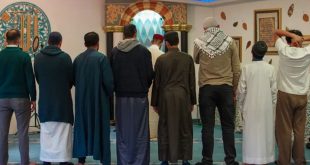Major tourism players will be tapped to push for the development of the Halal sector in the country in a bid to attract more tourists from Islamic countries.
In a roundtable discussion at Dermpath at SM City on Tuesday, Marilou Ampuan, a trustee of the Tourism Congress of the Philippines, said that they are encouraging business establishments to seek for accreditation from a certifier who is accredited by the National Commission on Muslim Filipinos (NCMF).
She said that these tourism players are in the frontline who welcome the Muslim tourists when they come to visit the country.
There are only three NCMF-accredited certifiers in the country, one each for Luzon, Visayas, and Mindanao, Ampuan added.
There are initially 10 industry players in Davao, 20 in the Visayas (10 are in Boracay Island), and 20 in Luzon who have so far signified their interest to be tapped as industry partners who will apply the principles and concepts of Halal in the production of their products and services.
Ampuan said that it would be best if the industry players will be granted with tax exemption while they are starting.
“For 2016, we want to increase the awareness of the people about Halal. We cannot tell them what to do without having the basic information about Halal,” she said.
In July 2015, the City Council amended the “Halal Ordinance” in order to advance and protect the rights, culture, and lifestyle of the Muslims.
Under the amended ordinance, food establishments that offer Halal-processed food and beverages should secure a Halal certification from an NCMF-accredited body.
“The common misconception with regard to Halal is that it pertains to food products that have no pork or other forbidden ingredients. However, Halal is more than a word to describe food. It is a way of life, following the teachings of Islam to achieve a ‘holy’ or ‘blessed’ lifestyle. It goes beyond food and drink and is imbibed in everything they do,” City Councilor Mabel Sunga-Acosta said during the Halal Festival in July last year at Abreeza Mall.
Acosta added that NCMF provides more standardized regulations in Halal-processing that apply to all food and non-food establishments.
Ampuan said hotels in the city should have basic necessities for Muslim tourists like Qibla, an arrow that points to the direction of Mecca; prayer mats during salat, a Muslim prayer which is done three times daily; and Islamic reading materials like the Quran.
“Our hotels must provide these basic necessities so that they will feel at home,” she said.
Among the hotels in the city that have agreed to comply with the basic requirements include Marco Polo Hotel Davao, Seda Abreeza Hotel, Park Inn By Radisson Davao, Grand Regal Hotel Davao, Waterfront Insular Hotel, Microtel, and El Bajada Hotel.
Davao City is poised to be a Halal-friendly city, Ampuan added.
Citing the need to develop more accredited businesses, she said that Halal is a $3.2-trillion global industry where the Philippines’s share is minuscule as compared to its ASEAN neighbors like Malaysia.
Ampuan said that there have been Halal-certified businesses in the country that are already exporting, however she pointed out that the country’s brands are not so credible in the global market.
 Ijtihad Network Being Wise and Faithful Muslim in the Contemporary World
Ijtihad Network Being Wise and Faithful Muslim in the Contemporary World
